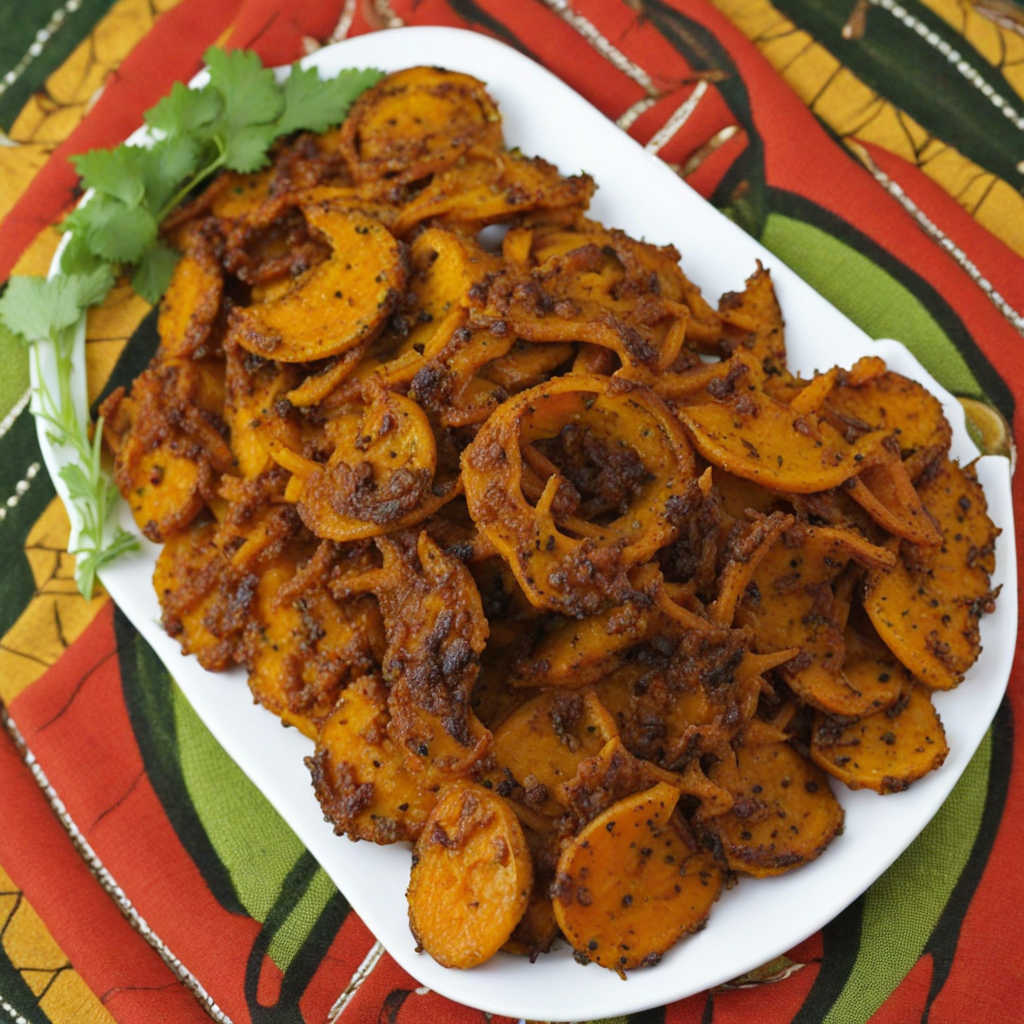Ubwumbu
Ubwumbu is a traditional Rwandan dish that showcases the rich culinary heritage of the region. This flavorful meal is primarily made from fermented cassava, which is a staple in many African cuisines. The fermentation process gives Ubwumbu its unique tangy flavor, setting it apart from other starch-based dishes. It is often served with a variety of accompaniments such as spicy sauces, vegetables, and meats, making it a versatile option that can suit different palates. The dish is not only delicious but also nutritious, packed with carbohydrates and essential vitamins, making it a beloved choice among locals. The preparation of Ubwumbu requires a careful balance of time and technique, as the cassava must be properly fermented to achieve the desired taste and texture. Once ready, the fermented cassava is typically ground into a smooth paste and then shaped into balls or patties, which can be lightly fried or steamed. The texture is soft and slightly chewy, allowing it to absorb the flavors of the accompanying sauces. This dish is often enjoyed during communal gatherings or special celebrations, emphasizing the importance of sharing food in Rwandan culture. For those looking to explore new flavors, Ubwumbu offers an exciting culinary experience that reflects the essence of Rwandan cuisine. Its distinct tanginess, paired with robust spices and fresh ingredients, creates a delightful balance that keeps food lovers coming back for more. Whether you pair it with spicy grilled meat or a medley of sautéed vegetables, Ubwumbu promises to take your taste buds on an unforgettable journey through the heart of Rwanda.
How It Became This Dish
Ubwumbu: A Culinary Journey Through Rwandan History Ubwumbu, a traditional Rwandan dish, is more than just a culinary delight; it embodies the rich cultural heritage and the resilient spirit of the Rwandan people. Primarily made from fermented cassava, often served with a variety of accompaniments, Ubwumbu has deep historical roots that intertwine with the agricultural practices, social structures, and culinary traditions of Rwanda. Origins of Ubwumbu The origins of Ubwumbu can be traced back to the pre-colonial era in Rwanda when the Tutsi, Hutu, and Twa communities cultivated crops that thrived in the highland regions. Cassava, a resilient root vegetable, was among the staple crops introduced to the region due to its adaptability to diverse climatic conditions. The process of fermentation, which is crucial to the preparation of Ubwumbu, reflects ancient practices where fermentation was utilized not only as a method of preservation but also as a means to enhance flavor and nutritional value. Fermentation has long been a part of Rwandan culinary traditions, with local communities developing methods to ferment not only cassava but also other staple foods such as maize and sorghum. The unique fermentation process for Ubwumbu involves allowing grated cassava to ferment naturally, cultivating beneficial bacteria that transform the starches into a more digestible form. This practice highlights the ingenuity of Rwandan food culture, as it maximizes the use of available resources and enhances food safety. Cultural Significance Ubwumbu holds significant cultural value in Rwandan society. Traditionally, it is more than just a food item; it is a symbol of community, resilience, and heritage. The preparation and sharing of Ubwumbu often occur during communal gatherings, celebrations, and rituals, acting as a connector among generations. Families come together to prepare this dish, sharing stories, traditions, and knowledge that have been passed down through the ages. In Rwandan culture, food is intrinsically linked to social identity and community. Ubwumbu represents the agricultural foundation of the Rwandan lifestyle, emphasizing the importance of cassava cultivation in sustaining families and communities. Its preparation often involves members of the family or community working together, fostering cooperation and solidarity. As such, the act of making and sharing Ubwumbu becomes a ritualistic expression of unity and resilience, particularly poignant in the context of Rwanda's tumultuous history. Development Over Time The evolution of Ubwumbu reflects the broader historical and social changes that Rwanda has experienced. With the arrival of colonial powers in the late 19th and early 20th centuries, agricultural practices and food systems began to change, influenced by new agricultural policies and the introduction of cash crops. While cassava remained a staple, the focus shifted towards crops that could be exported, altering local food patterns. The Rwandan Genocide of 1994 marked a significant turning point in the nation’s history, impacting every aspect of life, including food culture. The trauma of the genocide and the subsequent rebuilding process saw traditional foods like Ubwumbu regain their importance as symbols of resilience and national identity. In the years following the genocide, Rwandans began to reconnect with their culinary heritage as a means to heal and unite. Ubwumbu emerged as a comfort food that not only nourished but also served as a reminder of the strength of the Rwandan spirit. In contemporary Rwanda, Ubwumbu has undergone a renaissance. As the country continues to modernize, there has been a renewed interest in traditional foods, spurred by a growing appreciation for local ingredients and sustainable practices. Chefs and food enthusiasts are incorporating Ubwumbu into modern culinary experiences, often pairing it with locally sourced vegetables, meats, and sauces, thus bridging the gap between traditional and contemporary cuisine. Moreover, the globalization of food culture has facilitated the emergence of Rwandan cuisine on the international stage. Restaurants and food festivals worldwide are beginning to showcase dishes like Ubwumbu, raising awareness of Rwandan culinary traditions and their significance. This exposure not only honors the dish’s heritage but also provides economic opportunities for local farmers and communities involved in its production. Conclusion Ubwumbu represents more than just a dish; it is a testament to Rwanda's agricultural history, cultural identity, and the collective resilience of its people. Its evolution from a traditional staple to a symbol of unity and healing reflects the broader narrative of Rwanda's journey through hardship and recovery. As the world becomes increasingly interested in authentic culinary experiences, Ubwumbu stands out as a beacon of Rwandan culture. It invites us to explore the interconnectedness of food, community, and history, reminding us that every dish carries a story and a legacy. Through the preparation and enjoyment of Ubwumbu, Rwandans continue to celebrate their heritage, foster community bonds, and share their remarkable journey with the world. In essence, Ubwumbu is not just a food; it's a cultural artifact, a reminder of the past, and a celebration of resilience that will undoubtedly continue to evolve in the years to come.
You may like
Discover local flavors from Rwanda







